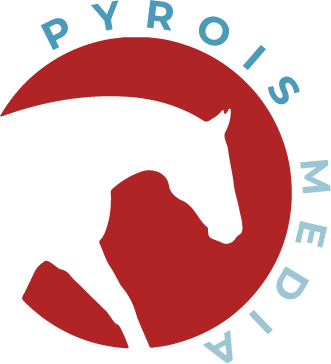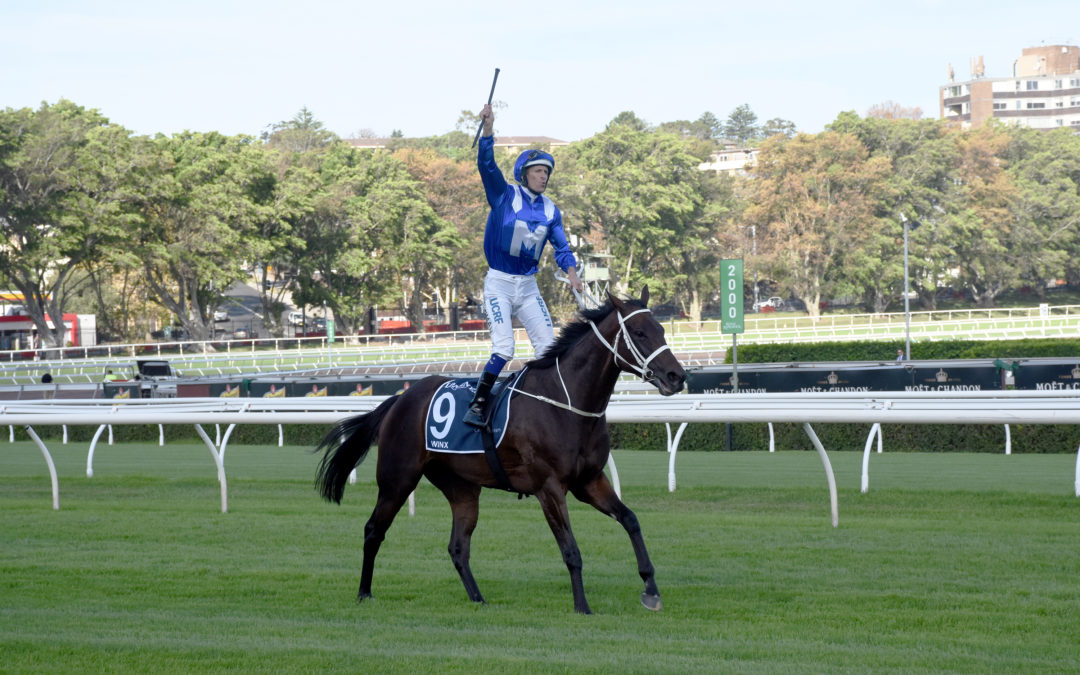One of the first questions I am often asked by people who want to work in the equine industry is some variation of “𝘄𝗵𝗮𝘁 𝗮𝗱𝘃𝗶𝗰𝗲 𝘄𝗼𝘂𝗹𝗱 𝘆𝗼𝘂 𝗴𝗶𝘃𝗲 𝘁𝗼 𝘀𝗼𝗺𝗲𝗼𝗻𝗲 𝘄𝗵𝗼 𝘄𝗮𝗻𝘁𝘀 𝘁𝗼 𝘄𝗼𝗿𝗸 𝗶𝗻 𝘁𝗵𝗲 𝗶𝗻𝗱𝘂𝘀𝘁𝗿𝘆?”
Every time I’m asked I think back to what helped me get to this point in my career starting from the earliest days. The biggest thing is that I’ve had very diverse experience and made sure much of it was specialized to my goals. So my answer to the question is almost always “get as rounded an equine education as possible.”
When I was a kid, I competed in many different events. I spent years showing in in western equitation and pleasure classes and showmanship was a part of my life throughout most of my showing career. On top of that, I competed in basically every speed event offered within 100 miles of me. Living on a farm, I was also able to learn how to work cattle and even competed in cattle events during my High School Equestrian days.
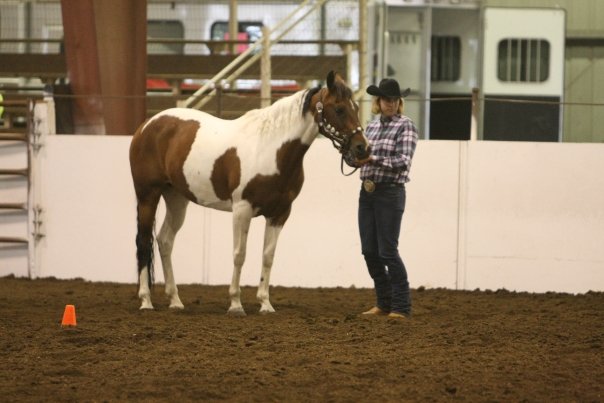
Many years of my showing career included showmanship.
I’ve also dabbled in English riding off-and-on (though never shown in the discipline) so I’m a pretty well-rounded rider. Since I’m a big horse nerd, even if I haven’t tried a horse sport it’s likely that I’ve read enough about it to feel confident talking about it.
With that said, no one should feel they need to buy a five-star eventer or a World Champion western pleasure horse to get the diverse education I’m talking about. Even a few lessons in a new discipline or volunteering at a show will help you see sides of the sport outside your specialty.
I spent most of my early career after college on the horse racing side but because of how much I’ve branched out, I feel comfortable in other disciplines as well. As someone who also covered a lot of ex-racehorse stories as well, this has held me in good stead over the years and it has also helped my business. I’ve had a variety of clients since opening Pyrois Media with eventing, western pleasure, and even a ranch just a few of my non-racing clients so my efforts have helped me provide better service for them while also helping me reach goals I have for Pyrois.
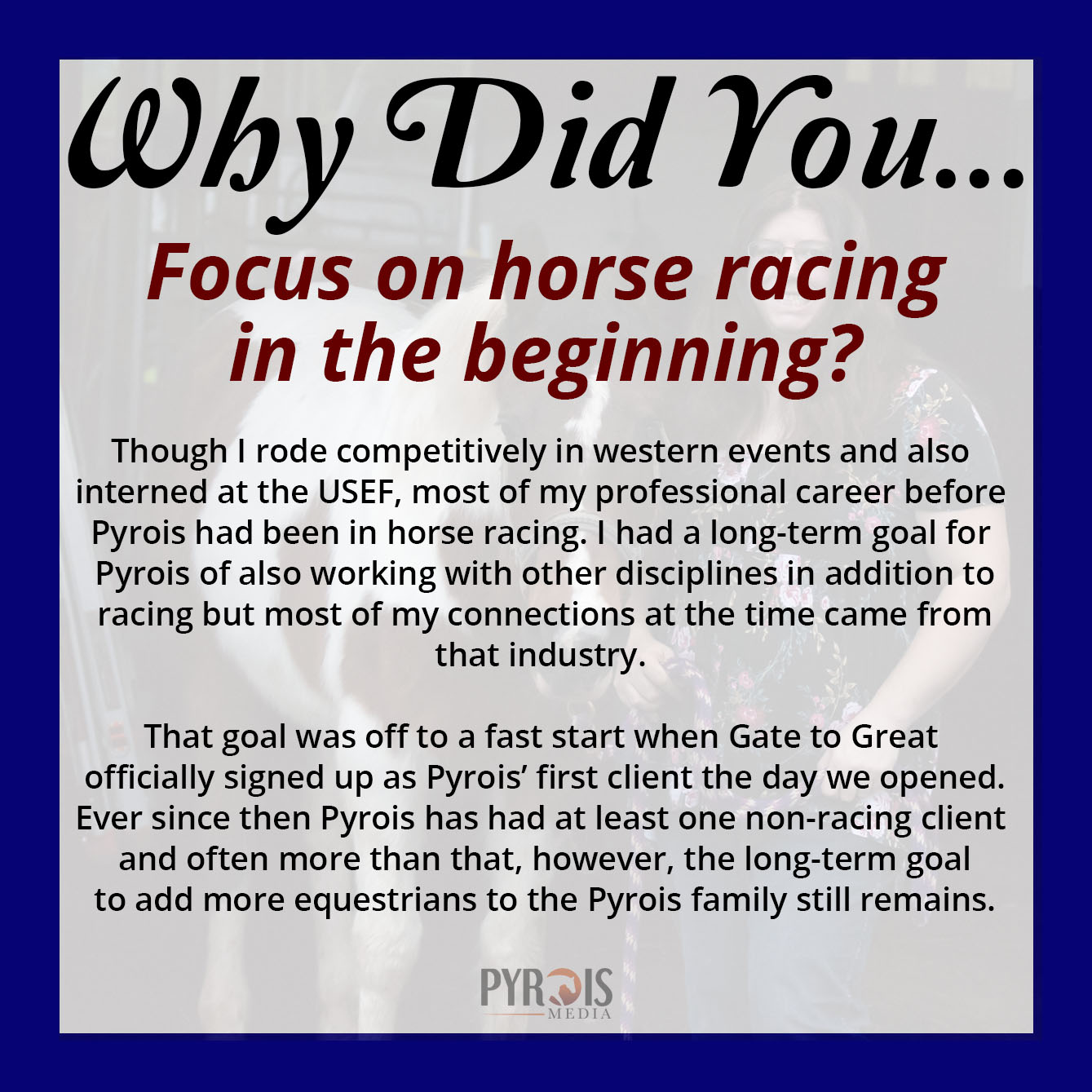
I recommend always trying to diversify your knowledge no matter how experienced you are or even what industry you want to work in. But once it comes to focusing on work experience, it’s time to think about your true goals.
I went to school to pursue a journalism degree because I knew I either wanted to be a sports journalist or part of a communications team. I took a step back from being as involved in the equine industry during my college career as I was as a teenager but I still covered equestrian events for the university newspaper and consistently read industry news plus traveled to a few equine events.
My goal led to me inquiring about an internship in the United States Equestrian Team’s communications department before moving to writing for multiple outlets. My goals have changed slightly during my career but everything I’ve done has focused on communication.
Even the farm jobs I’ve worked in have been to learn more about different facets of the industry so I could do a better job wherever my career took me.
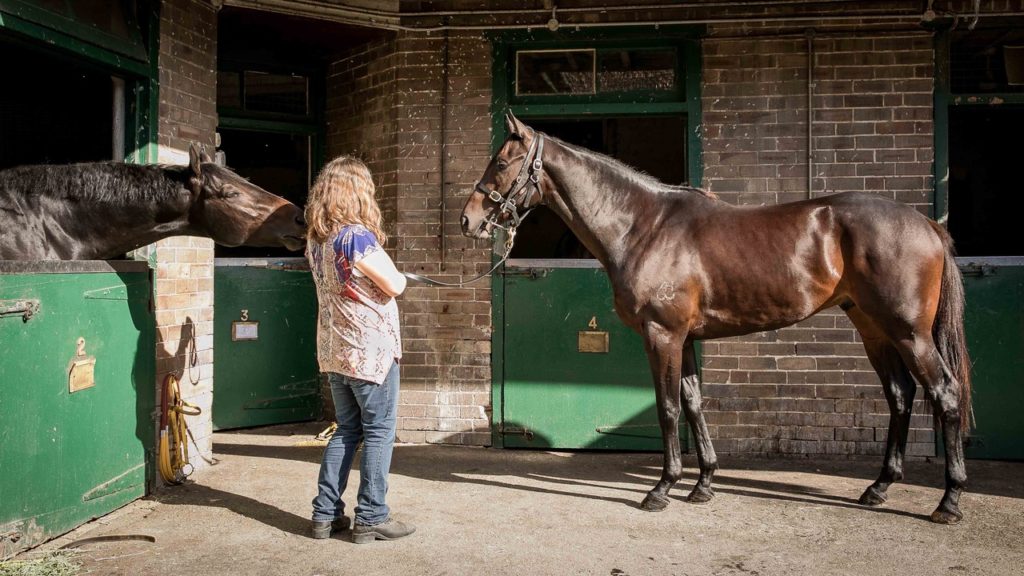
My time in Australia was focused more on communication and marketing but also proved to be hands-on. (Need For Steed Photography)
I know it can seem overwhelming to find equine industry jobs or to get the experience many want so you can find a few ideas on how to get started below:
– If you have the goal of becoming a Thoroughbred farm manager, spend your summers helping prepare yearlings for sales. If you don’t live in an area where Thoroughbred farms are prevalent, emailing farms that focus on other disciplines can go a long way in helping you gain experience. But if you want to travel to a horse-heavy area, many farms are always looking for people to help them prep and some will even provide you with accommodations.
If you go to college near Thoroughbred farms, many will also let you work part time during the school year in different divisions of the farm. This also has the added benefit of letting you learn more about the different opportunities available in this career.
– Do you want to become a trainer? Trainers in many disciplines offer working student positions or apprenticeships. You can often find advertisements for those on Facebook groups or again – just sending an email can give you multiple leads.
– Both school year and summer internships can be a solid avenue to go down if you’re wanting to work in a non-farm role. Many racetracks and breed/discipline associations have internship openings throughout the year. One large association that often has internships is the American Quarter Horse Association.
– Different parts of the equine industry also have programs for those interested in working in the equine industry with most not requiring college students or graduates. A few are the Amplify Horse Racing Mentorship program in the U.S., the Irish National Stud Breeding Course open to everyone, the Kentucky Equine Management Internship (KEMI) for those with two or more years of college experience, and the Professional Groom Training Certificate, a program affiliated with the Eventing Riders Association of North America.
If you’re past your college years and work at a job outside of the equine industry but would like to make a change, it’s not too late to jump into the horse world.
Most of the jobs and internships I participated in were when I had a full time job. I worked as the weekend editor for an industry newspaper during my days off at the USEF and nearly all of my marketing and farm internships/jobs were done during my days off at America’s Best Racing. It may take a bit of reorganizing of your schedule or giving up free days, but it can be done!
Have questions about how you can get involved in the equine industry or looking for a mentor? Email Melissa@PyroisMedia.com!
